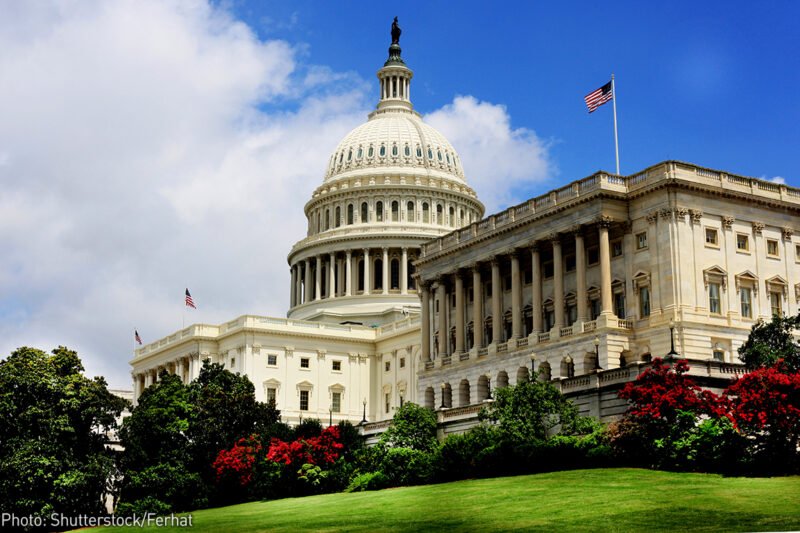
This was originally posted at .
One section of the Patriot Act has been ritually abused. Americans want it changed. With a few days left to kill, amend, or reauthorize the bill, the ņŌįń√ŇŅ™ĹĪĹŠĻŻ's legislative counsel says the latter is no longer a viable option.
Congress has just a handful of legislative left days to decide whether to amend, extend, or simply let provisions of the Patriot Act expire on June 1. And, for now, the ball is in the Senate's court.
Last week, the House of Representatives overwhelmingly passed the USA Freedom Act, a bill that proposes scaling back‚ÄĒbut still extending‚ÄĒthe expiring provisions. While it would limit some forms of abuse, the bill unfortunately still leaves room for the government to collect the information of thousands of innocent Americans.
In short, it simply doesn't go far enough. And, it is out of touch with the views of the public.
A new ņŌįń√ŇŅ™ĹĪĹŠĻŻ-commissioned poll released this week finds that voters want the Patriot Act to be modified to protect Americans' privacy‚ÄĒby nearly two-to-one margin. The poll also notes that more than 80 percent of likely voters are concerned that the government is collecting and storing personal information such as phone records, emails, and bank statements. Almost the same percentage of people says that a warrant should be required to search those types of records.
It's clear what the public wants: a retooled, less invasive Patriot Act.
The USA Freedom Act‚ÄĒa modest, inadequate rollback of some of the NSA's authorities just passed by the House‚ÄĒfaces an uncertain future in a divided Senate. Some Senators have rallied around the bill, framing it as the only viable reform option on the table. Senate Republican leadership, however, appears to have rejected the notion of reform and supports reauthorizing the expiring provisions for five years or, at least, temporarily.
Both approaches are misguided. Unless the Senate can make substantial improvements to the USA Freedom Act, Congress should simply let the provisions of the Patriot Act expire instead.
The expiring provisions ‚Äď including Section 215 ‚Äď were never intended to be permanent. In the wake of 9/11, Congress included sunset dates precisely to ensure that our country debated not only whether these provisions were still necessary, but also whether they were used in a way that violated the law and Constitution.
Over a decade after 9/11, we can no longer turn a blind eye to how these provisions have been abused.
We now know that Section 215 has been used to create massive surveillance programs that far eclipse the original intent of the law.
Under Section 215, the government collects information about every call made to or from an American. This includes every call made to a doctor, suicide hotline, journalist, or even place of worship. In addition, Section 215 has also reportedly been used by the FBI and CIA to collect large numbers of other records, including financial records.
This month in a landmark decision, a federal appeals court ruled that the call records program operated under Section 215 is illegal. This ruling aligns with recommendations made by an independent government oversight board, which found in early 2014 that the program had not made a substantial impact on any terrorist investigation and should be discontinued in its present form.
Given this, the question is not whether we should let Section 215 sunset, but why are we even considering letting it continue?
If Congress elects to move forward with the current bill instead of allowing Section 215 to sunset, it must be strengthened substantially to provide meaningful protections for Americans.
The language of the bill should further narrow the ability of the government to collect the information of people with no nexus to terrorism. As the federal court opinion made clear, Section 215 was never intended to allow the government to amass and data mine the records of Americans with no connection to a specific investigation. It was used that way anyway for over a decade.
The bill also needs to require that the government promptly purge all irrelevant records to ensure that government databases containing the information of innocent Americans do not continue to balloon.
Any bill worth passing should include widely supported reforms to prevent the government from using Section 702 of the Foreign Intelligence Surveillance Act‚ÄĒanother controversial surveillance authority‚ÄĒto obtain information about Americans. Specifically, the bill should close the so-called "backdoor search loophole," and require the government to obtain a warrant prior to searching through the Section 702 database for information about Americans.
Positive legislation also has to change other provisions of the law, like the administrative subpoena authorities. Until 2013, these were also used to collect Americans' call records en masse. As the federal court of appeals made clear, laws that permit the government to collect records "relevant" to an investigation are not a blank check for the government to engage in mass surveillance.
And, a reform bill should eliminate loopholes in the transparency provisions to ensure that members of Congress and the public are never again left in the dark about the NSA's surveillance activities. Specifically, the government should be forced to report the full scope and total number of individuals impacted under Section 215, as well as under Section 702.
Without these improvements, the bill falls short of providing the meaningful surveillance reform the public demands and our country deserves.
Section 215 was supposed to expire when it became clear that it was no longer serving the best interests of our country. That has happened. Let it expire, as so many Americans want it to.

